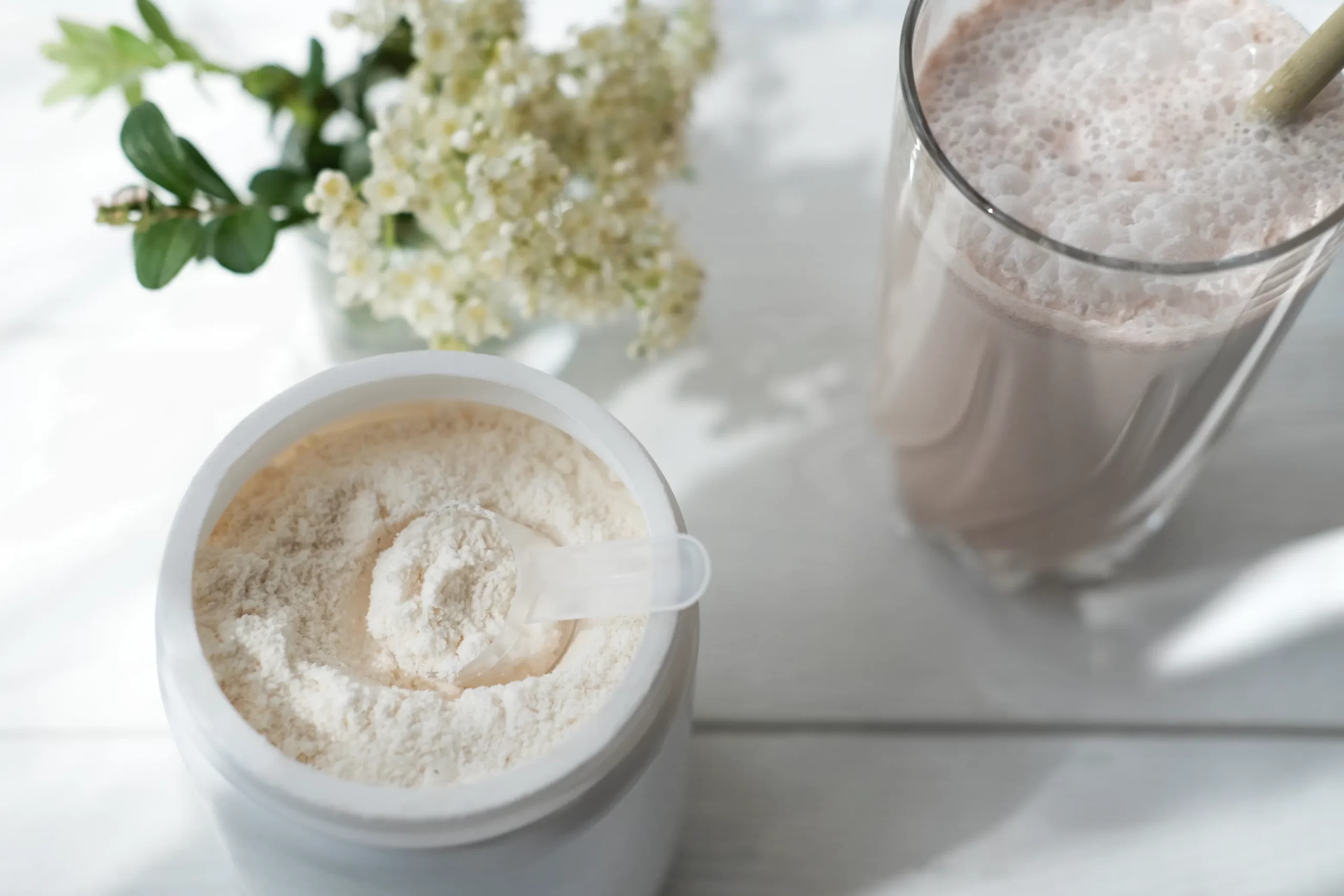Whey is the most popular protein powder. However, there are still many unanswered questions about this dietary supplement, including its shelf life. How many weeks can whey be kept after opening? Can the product expire?
Can consuming out-of-date whey harm the health of athletes? These are just some of the points we need to clarify in this article. Having said that, it's important to remember that protein powders don't expire like ordinary foodstuffs or milk. Thanks to its powdery, dry appearance, whey is not conducive to microbial contamination or fermentation.
In a nutshell
Yes, whey can indeed expire. It doesn't spoil like fresh food because of its dehydrated form, which limits bacterial growth, but it can lose biological effectiveness over time. Amino acids oxidize, diminishing whey's ability to promote muscle mass gain.
However, amino acids can oxidize, reducing the biological effectiveness of whey or isolate. This reduces their ability to promote muscle mass gain.
To preserve all the benefits of this supplement and achieve your goals, you need to pay particular attention to the proper storage of your whey. Naturally, we'll be giving you tips on how to store your whey properly and how to consume high-quality whey.
Contents
Can whey expire?
Whey is not comparable with other food products. Because it is dehydrated, this supplement is not conducive to the development of bacteria responsible for food decomposition.
In this form, whey cannot "spoil" in the same way as milk or meat. That's why producers label these products with a date of minimum durability (DDM) rather than an expiry date.
The date of minimum durability indicates the date up to which the food in question retains all the characteristics shown on its packaging. Beyond this date, consumption of the product does not constitute a health hazard. However, it may lose some of its nutritional and organoleptic qualities.
As legislation requires manufacturers to label whey with a DDM rather than an expiration date , whey is not considered a sensitive food product. Although this protein powder may lose some of its quality after DDM, whey is not a health hazard if consumed a few days or even months after its DDM.
In this case, however, some changes in taste and/or composition are to be expected. The dietary supplement could potentially provide fewer amino acids of high biological value. This is detrimental to the progress of athletes and body-builders. Moreover, cooking whey will not solve this problem. Hence the importance of paying close attention to this issue.
How to preserve your whey?

Being dehydrated whey, whey does not constitute a favorable environment for the development of bacteria of any kind. Properly packaged, whey has a long shelf-life, often in excess of 1 year.
In general, the DDM of raw whey is 24 months at the time of production. The limiting DDM in a ready-to-use product will generally be linked to flavoring. With synthetic flavours, or natural flavours with preservative additives, there is no need to worry about stability. That said, when using natural flavors, without preservative additives, as is the case at Protéalpes, the DDM may be a little shorter, to ensure taste stability.
In any case, it's important to ensure that your whey pack is stored in the right conditions. Protect the product from humidity, heat, frost and direct sunlight.
When preparing your whey shaker, wash your hands thoroughly and make sure they are completely dry before handling the scoop. Finally, don't forget to close the pack with the zip provided.
If you follow these recommendations carefully, you'll be able to keep your whey up to DDM, even once the packet has been opened. This advice is all the more valid if you opt for a whey without additives.
Some of these additives act as preservatives. However, as we have repeatedly pointed out, these components are responsible for some of whey's side effects.
Please note: once protein powder has been mixed with water or milk, it should be consumed immediately (within the hour). This mixture provides a favorable environment for the proliferation of microorganisms.
You can, however, prepare your shaker in advance and store it in the fridge for a few hours (in the morning for the evening, or overnight for a fresh shaker for breakfast).
How to recognize expired whey?
As mentioned above, whey can spoil, but not in the same way as meat or milk. Moreover, the law does not oblige retailers to remove from the shelves products whose DDM has been exceeded. As a result, you may come across packets of disappointing quality. But how can you tell if a whey has really expired?
Due to oxidation of its components, expired whey changes taste and color. This normally whitish powder turns noticeably yellow. In addition, you'll notice that your shakers will have a slightly blander flavor. Depending on storage conditions, your protein powder will also show lumps, a sign that moisture has infiltrated.
Good to know: whey that foams a lot doesn't mean it's out of date. This should reassure consumers. In general, it shows that the supplement does not contain lecithins.
What are the risks of consuming expired whey?
Expired whey is not a health hazard when stored under the right conditions. Due to the absence of moisture, this product will not become a breeding ground for microbes. As such, consumers will not be exposed to serious food poisoning.
Normally, whey is only exposed to oxidation over time. It is precisely this oxidation that explains the change in flavor and color mentioned above. However, this process also harms certain components of the product, including the amino acids.
Among other things, a study has shown that after one year's storage at 21°C and 45-65% humidity, the lysine content of whey decreases by around 3%1. This gradual degradation applies to all the other amino acids contained in protein powder.
Whey is a complete protein powder. It contains all the essential amino acids. A quality which explains its massive use in sports nutrition.
Warning: expired whey can be toxic if contaminated by pathogens. If you find a lumpy protein powder, it's best to throw it out. The presence of lumps means that there is moisture in the packet. This is precisely what was lacking for various micro-organisms to thrive.
Does expired whey protein have less effect?
Out-of-date whey can keep you from achieving your goals, whether you're looking to build stamina or muscle. This is because oxidation reduces the protein content of the product. By consuming an expired supplement, you run the risk of not meeting your protein requirements. For this reason, it's best to choose a whey whose DDM has not expired, and to ensure that it is stored properly.
High-quality whey or isolate will really help you to optimize your diet, whether you're into bodybuilding or endurance sports. By opting for these products, you can prepare a shaker or a whey-based recipe without any fear.













